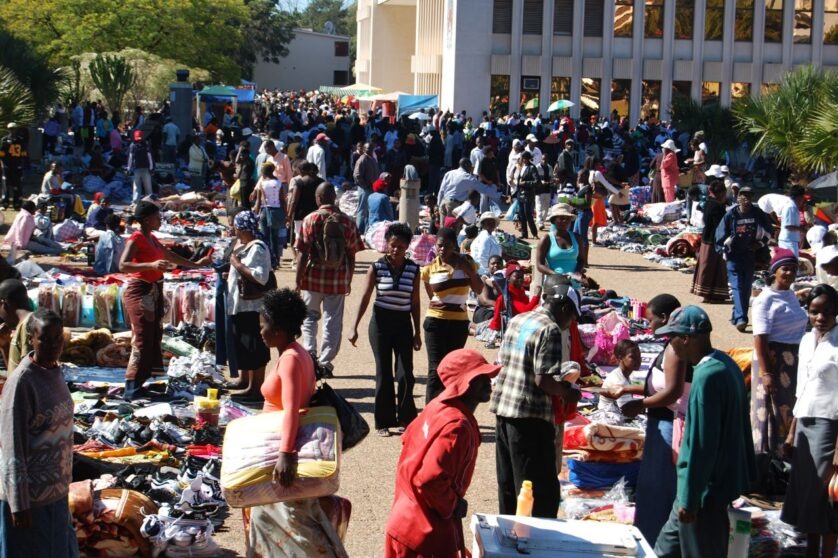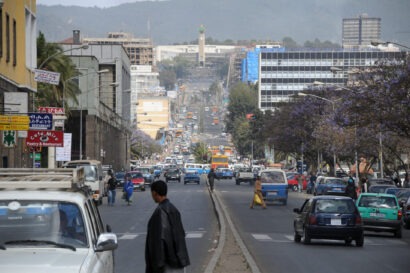Walk through any bustling street in Harare or any other Zimbabwean city and you’ll see it: the vibrant hum of informal businesses—hair salons, food vendors, taxi drivers, clothing stalls, and more. These are not just side hustles or temporary gigs. For many, they are the backbone of survival. Yet, when it comes to taxation, Zimbabwe’s informal sector is often treated with suspicion, pressure, and punitive measures. A recent study makes it clear that policymakers need to use more carrots than sticks when engaging with informal traders.
The informal sector: big, busy, and misunderstood
Zimbabwe’s informal sector is massive. It contributes nearly two-thirds of the country’s economic output and four-fifths of employment. That’s more than most low- and middle-income countries. But despite its size, the sector remains poorly understood, especially when it comes to taxation. The dominant narrative is that the sector is lucrative and dodging taxes, often leading to hit and miss top-down policies.
Our latest study, based on a survey of 2,490 informal operators in Harare and Masvingo, dives deep into the realities of earnings, taxes, fees, and the hidden costs of doing business informally. The result? A rich, nuanced picture of a sector that’s more vulnerable than villainous.
Who’s really earning enough to be taxed?
For every five informal business operators, only one earns enough to rise above the poverty line. In the study’s sample, these are mostly taxi and minibus drivers. For the remaining 80%, businesses are more about survival than profit. This finding challenges the assumption that informal traders are dodging taxes out of greed. In reality, most simply don’t earn enough to be taxed fairly. Yet, they still face a barrage of fees, permits, and—most troubling—bribes.
The hidden tax: fees, licences, and bribes
While only 6% of traders pay formal taxes (mostly presumptive and import taxes), nearly all face a complex web of user fees, licences, and permits. These payments act as a de facto tax system—one that’s highly regressive and disproportionately affects women. In Harare for example, a hair salon needs three separate licences—for hair, makeup, and nails. That’s a lot of paperwork and money for a small business. And when traders can’t keep up with these demands, they often resort to bribes. These informal payments are pocketed by street-level officials and have become a default tax, undermining trust in government and draining public revenue.
Gender matters: Women bear the brunt
Women earn less than men and are more likely to be in sectors with low entry barriers and low returns like food and clothing. Yet, paradoxically, women are also more tax compliant and less likely to pay bribes. This double burden—lower earnings and higher compliance—calls for gender-responsive taxation. That could mean tax credits, lower thresholds, or simplified regimes for sectors with high female ownership. Without such measures, the current system risks deepening inequality in the informal sector.
City dynamics matter too
Traders in Masvingo pay significantly less taxes than those in Harare (capital city), both in absolute and relative terms. This suggests that local dynamics matter and that a one-size-fits-all approach to informal taxation is flawed. Policymakers need to address capital/big city bias and design local tax regimes that reflect the realities of smaller cities. That means understanding local earning profiles, cost structures, and compliance challenges.
What needs to change?
The study doesn’t just diagnose the problem—it offers a roadmap for reform. Here are some of the standout recommendations:
1. Simplify tax regimes without overburdening the poor
Simplified tax regimes (STRs), such as flat rate-based taxes (e.g., USD 20 per business per quarter), are popular but can be blunt instruments. Without careful targeting, they risk taxing the poor more heavily than the rich. While the informal economy is large, pockets of taxable income are limited. Tax systems should reflect this reality.
2. Streamline licenses and permits
Basic businesses shouldn’t need a stack of licenses to operate. Reducing the number of required permits—and allowing phased payment through instalments instead of lump sums—can ease compliance and reduce corruption. Fortunately, the government of Zimbabwe has already started reviewing the cost of doing business formally, with the Finance Minister acknowledging in the August mid-term budget speech that some businesses “can only be profitable if they don’t comply”.
3. Educate Traders
Many informal operators only learn about regulations after they’re arrested. That’s not just unfair, it’s counterproductive. Education campaigns, especially those tailored to literacy and digital skill gaps, can empower traders and improve compliance.
4. Increase transparency
To tackle corruption, some traders suggest visible identification for city officials like yellow vests with name tags. This could help prevent impersonation and reduce bribe demands.
5. Adopt a service-first approach
Informal traders feel excluded from public services. They pay multiple fees and bribes but get little in return. This erodes tax morale and weakens the fiscal contract between citizens and the state. A quid pro quo approach—where payments are linked to visible services—could rebuild trust. Many informal traders voice the need for amenities such as toilets, while their top priority remains basic health care.
More carrots, fewer sticks
The informal sector is not novel; it is the norm in emerging economies. Zimbabwe’s informal sector doesn’t need more crackdowns or complex tax codes, it needs incentives, support, fairness, and inclusion. The biggest question for policymakers is not how to police traders better but rather how to make formalisation the preferred approach while recognising the sector’s economic role and building a tax system that’s responsive rather than repressive. Instead of chasing pennies from struggling traders, the government could focus on helping these businesses grow. That way, they’ll eventually earn enough to be taxed—and be willing to pay. It’s a long game, but one that promises more carrots than sticks, and ultimately, a stronger, fairer economy.



